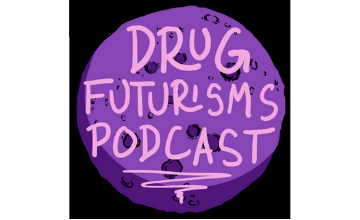“Harm reduction is a dynamic response to a fundamentally hostile world … a strategy of resistance that at its best can build justice and is love.” – Karen Ward*
“Meet people where they’re at”, is easy to say but hard to do. It is the root of harm reduction, where our ability to imagine a better future comes from. But, what does that mean for treatment? Sheila Vakharia has witnessed first hand the punitive nature of our currently existing treatment. Now working to support the imaginings of an abolitionist social work, Dr. Sheila Vakharia, the Deputy Director of the Department of Research and Academic Engagement for the Drug Policy Alliance, comes on the Drug Futurisms Podcast to explore another possible world where treatment does not resemble a prison, but a space of care.
Treatment like prison was a reform. Unlike prisons, however, people need access to be supported, “treatment” in the sense to be treated well, treated with support, and given the space to treat their pain, on their own terms.
Edited by Marcel Rambo
Help us imagine better drug futures by having a conversation with a friend, sharing the podcast or supporting us at patreon.com/DrugFuturisms
Show Notes:
*Quote from Vancouver activist Karen Ward: https://twitter.com/kwardvancouver/status/1292667853091426304
[1] We reference a few times Mariame Kaba’s (2020) “We Do This ‘Til We Free Us: Abolitionist Organizing and Transforming Justice” by Haymarket Books
[2] Sheila Vakharia and Shira Hassan talk, “Harm Reduction, Abolition and Social Work”, here: https://youtu.be/_iFwX_Jzunk
[3] Carstairs Catherine (2006) book is “Jailed For Possession” – which references the history of the abolition of the RCMP in the 1920s
Podcast: Play in new window | Download
